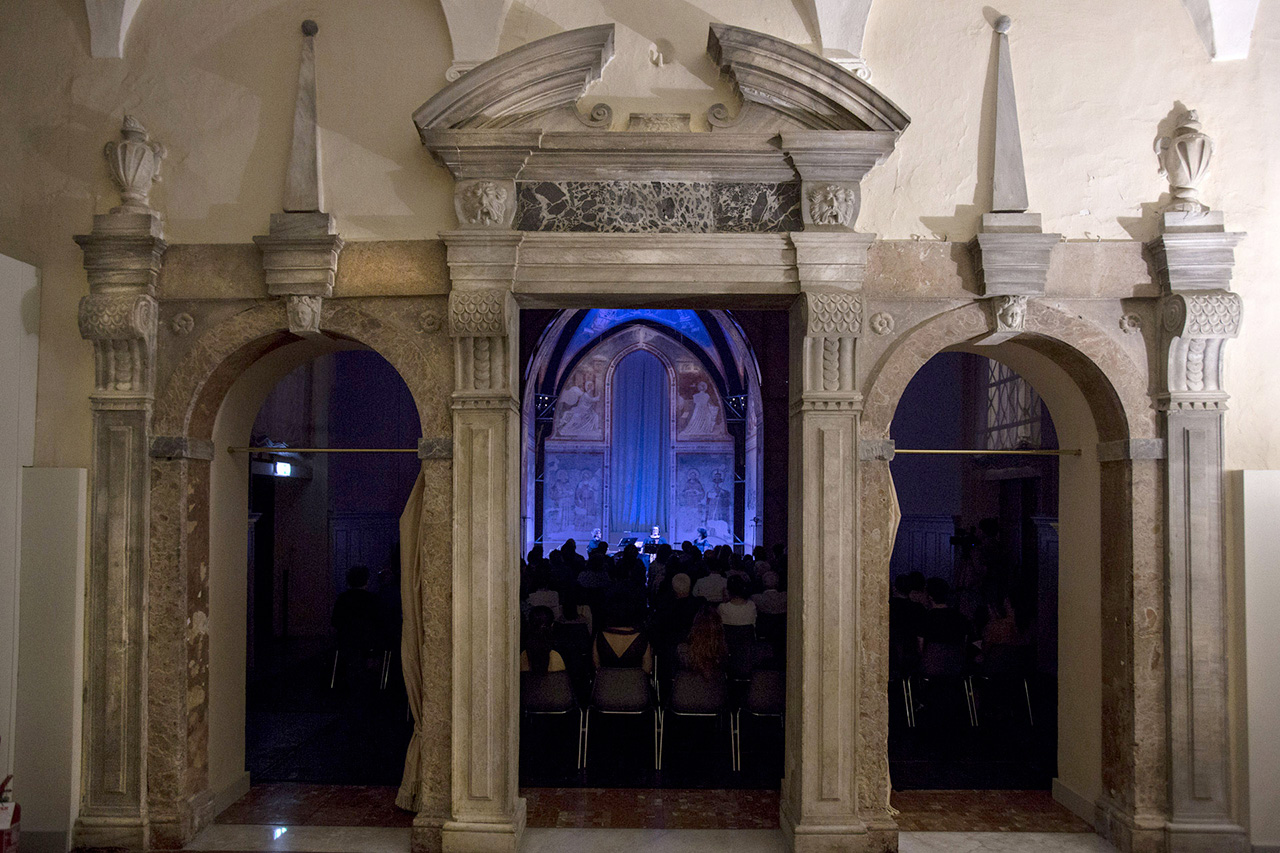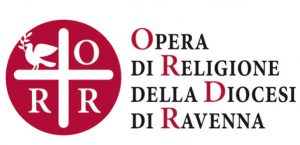© Angelo Palmieri
The Vespers at San Vitale
Duo Serenissima
Elisabeth Hetherington soprano
David Mackor liuto
A Tribute to Giulio Caccini
nel 4° centenario della morte
Giulio Caccini (ca. 1550-1618)
Amarilli, mia bella
Dolcissimo sospiro
Non ha ’l ciel cotanti lumi
Johannes Hieronymus Kapsberger (ca. 1580-1651)
Toccata II dal Libro Primo d’Intavolatura di Lauto (1611)
Giulio Caccini
Amor, io parto
Belle rose porporine
Torna, deh torna (Aria della Romanesca)
Johannes Hieronymus Kapsberger
Toccata VI dal Libro Primo d’Intavolatura di Lauto (1611)
Francesca Caccini (1587-1641)
Maria, dolce Maria
Giulio Caccini
Udite, udite, amanti
Francesca Caccini
Lasciatemi qui solo
Giulio Caccini
Dalla porta d’oriente
One of music’s true pioneers, the immense fame of Giulio Caccini felt both he was alive and hundreds of years after his death can be attributed to his ingenuity and development of monody. This new style of singing, involving an expressive and evocative melody with the accompaniment of a bass line to be realised with simple harmony by the player, was inspired by Greek tragedy, which was believed to be entirely sung. It was developed in the last quarter of the 16th century by the Camerata Fiorentina, of which Caccini was a member, and would lead to the birth of opera. This new style reached maturity in Caccini’s crowning work, his Nuove Musiche, the first publication to display this new way of writing. This invaluable document provides instructions not only on the purpose, intent and correct performance of monody from the time, but also included musical examples of ornaments – for example, how a specific passage can be ornamented in several different ways, according to the precise emotion that the singer wishes to convey.
It is impossible to ignore the direct influence Caccini had on the generations to follow, and we see a clear example of his legacy with his daughter, Francesca Caccini, also nicknamed La Cecchina. An accomplished musician in her own right, Francesca established herself as a singer, poet, lutenist and music teacher. Her only surviving stage work, La liberazione di Ruggiero (1625), is thought to be the oldest opera written by a woman.
The fame of Caccini’s compositions was in no way limited to Italy. Amarilli mia bella, for instance, was famous throughout the whole of Europe and even was published in Robert Dowland’s Musical Banquet with a harmonic realisation of the continuo.



